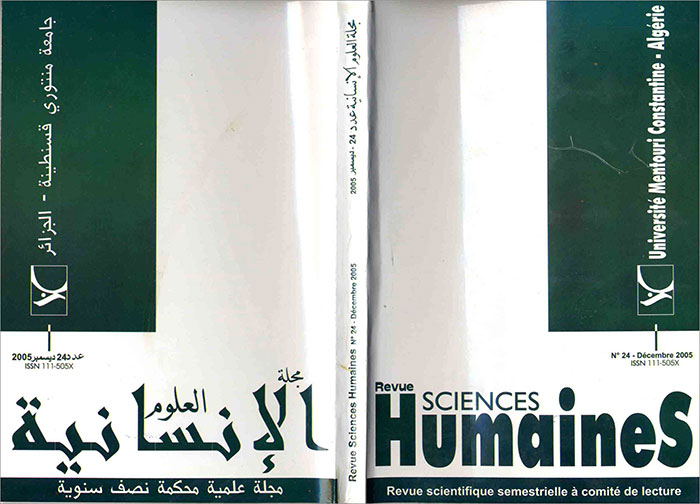E .mail Writing as a cross-cultural learning experience
Abstract
This study looks into the cultural dimension involved in the e-mail correspondence between EFL students inAlgeriaand English students inBritain. E .mail entries were analysed to yield insights into the cross- cultural communication process. The data analysis focussed on the types of cultural information transmitted and effects of cultural assumptions and values on communication effectiveness. The findings revealed fundamental characteristics of both.
Algerian and British cultures by the two groups of participants. It was also found that curiosity toward the other culture was a motivating factor for on-going correspondence but cultural presumptions were sometimes a hindrance for communication. Moreover, positive interpretations of cultural differences and empathy were key factors contributing to the removal of communication obstacles.Cross-cultural e. mail correspondence sensitized the participants to cultural differences and served as a learning experience for cross-cultural understandingDownloads
References
Byram,M. 1989. Cultural studies in foreign language education. Multilingual Matters. Clevedon.
Cononelos, T. Oliva, M. 1993. Using computer networks to enhance foreign language / culture education .Foreign language Annals 26, 527-534.
Crawford- lange. L, lange.D.1984. Doing the unthinkable in the second language classroom in Higgins,T(ed), Teaching for proficiency foreign language education series vol 5 .National textbook.
Evans,G.A.Gonzalez.O.G.1993.Reading inside the lines:an advanture in developing cultural understanding .Foreign language annals 26 (1) 39-48.
Galloway,I.1995.What is normal?examining cultural stereotypes via e.mail in :Warschauer M (ed) Virtual connections.University of Hawai.
Kramsch,C,1991.Culture in language learning: a view from the United states.Foreign language research.
McLaughlin,B.1987.Theories of second language learning.Arnold,London
Meskill,C, Rangelova, K,1995 .US language through literature: a transatlantic research project in warschauer ,M (ed) Virtual connections University of Hawai.
Morain,G.1986 The role of culture in foreign language education Washinghton D.C.
Omaggio, A.C1986 Teaching language in context.Heinte Publishers .Boston M.A.
Robin stuart,G Nocon, H .1996 .Second culture acquisition:ethnography in foreign language classroom .The modern language journal 4,431-449.
Seelye,H.N.1974. Teaching culture:Strategies for intercultural communication.National Textbook.
Soh,B.L Soon ,Y.P.1991 .English by e.mail: creating a global classroom via the medium of computer technology ELT journal 45,287-292.
Tang, R.1999 .The place of culture in the foreign language classroom: a reflection the internet.TESOL journal 5(8)
Warschauer;M;1995.E.mail for English teaching.Bringing the internet and computer learning networks into the language classroom.Alexandria.V.A












